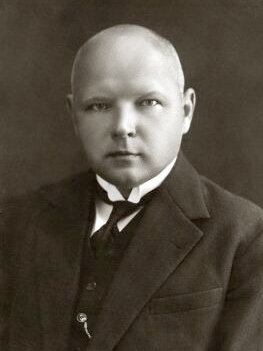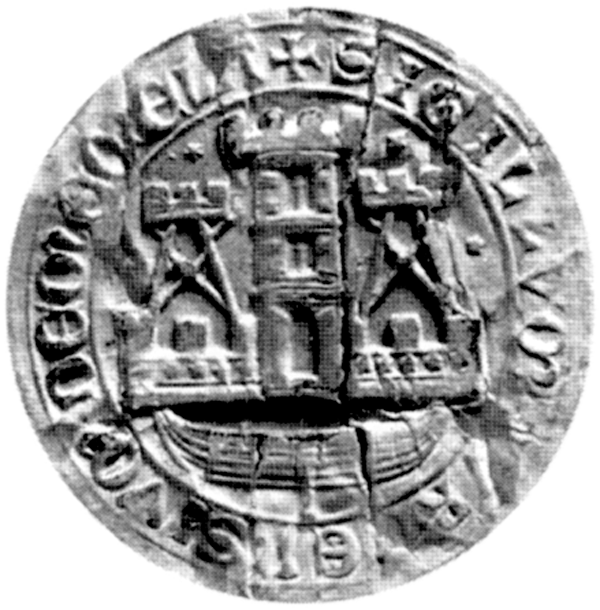|
Bank Of Lithuania
The Bank of Lithuania ( lt, Lietuvos bankas) is the central bank of the Republic of Lithuania. The Bank of Lithuania is a member of the European System of Central Banks. The chairman of the bank is Gediminas Šimkus. Until 2015, the Bank of Lithuania was responsible for issuing the former Lithuanian national currency – the litas. Primary functions According to the Bank's official website, the Bank of Lithuania performs these primary functions: * maintaining price stability, * formulating and implementing the monetary policy, * acting as an agent of the State Treasury. Bank leadership Governors of the Bank of Lithuania: *Vladas Jurgutis (1922–1929) * Vladas Stašinskas (1930–1939) *Juozas Tūbelis (1939) * Juozas Paknys (1939–1940) Chairmen of the board of the Bank of Lithuania: * Bronius Povilaitis (1990) * Vilius Baldišis (1990–1993) * Romualdas Visokavičius (1993) * Kazys Ratkevičius (1993–1996) * Reinoldijus Šarkinas (1996–2011) * Vitas Vasiliauskas ( ... [...More Info...] [...Related Items...] OR: [Wikipedia] [Google] [Baidu] |
Vilnius
Vilnius ( , ; see also other names) is the capital and largest city of Lithuania, with a population of 592,389 (according to the state register) or 625,107 (according to the municipality of Vilnius). The population of Vilnius's functional urban area, which stretches beyond the city limits, is estimated at 718,507 (as of 2020), while according to the Vilnius territorial health insurance fund, there were 753,875 permanent inhabitants as of November 2022 in Vilnius city and Vilnius district municipalities combined. Vilnius is situated in southeastern Lithuania and is the second-largest city in the Baltic states, but according to the Bank of Latvia is expected to become the largest before 2025. It is the seat of Lithuania's national government and the Vilnius District Municipality. Vilnius is known for the architecture in its Old Town, declared a UNESCO World Heritage Site in 1994. The city was noted for its multicultural population already in the time of the Polish–Lithuanian ... [...More Info...] [...Related Items...] OR: [Wikipedia] [Google] [Baidu] |
Vilius Baldišis
Vilius Baldišis (born 5 January 1961) is a Lithuanian politician. In 1990 he was among those who signed the Act of the Re-Establishment of the State of Lithuania. He was the chairman of the board of the Bank of Lithuania The Bank of Lithuania ( lt, Lietuvos bankas) is the central bank of the Republic of Lithuania. The Bank of Lithuania is a member of the European System of Central Banks. The chairman of the bank is Gediminas Šimkus. Until 2015, the Bank of Li ... from 1990 to 1993. References External links Biography 1961 births Living people Lithuanian politicians Chairmen of the Bank of Lithuania Signatories of the Act of the Re-Establishment of the State of Lithuania {{Lithuania-politician-stub ... [...More Info...] [...Related Items...] OR: [Wikipedia] [Google] [Baidu] |
Banks Established In 1922
A bank is a financial institution that accepts deposits from the public and creates a demand deposit while simultaneously making loans. Lending activities can be directly performed by the bank or indirectly through capital markets. Because banks play an important role in financial stability and the economy of a country, most jurisdictions exercise a high degree of regulation over banks. Most countries have institutionalized a system known as fractional reserve banking, under which banks hold liquid assets equal to only a portion of their current liabilities. In addition to other regulations intended to ensure liquidity, banks are generally subject to minimum capital requirements based on an international set of capital standards, the Basel Accords. Banking in its modern sense evolved in the fourteenth century in the prosperous cities of Renaissance Italy but in many ways functioned as a continuation of ideas and concepts of credit and lending that had their roots in the ... [...More Info...] [...Related Items...] OR: [Wikipedia] [Google] [Baidu] |
1922 Establishments In Lithuania
Nineteen or 19 may refer to: * 19 (number), the natural number following 18 and preceding 20 * one of the years 19 BC, AD 19, 1919, 2019 Films * 19 (film), ''19'' (film), a 2001 Japanese film * Nineteen (film), ''Nineteen'' (film), a 1987 science fiction film Music * 19 (band), a Japanese pop music duo Albums * 19 (Adele album), ''19'' (Adele album), 2008 * ''19'', a 2003 album by Alsou * ''19'', a 2006 album by Evan Yo * ''19'', a 2018 album by MHD (rapper), MHD * ''19'', one half of the double album ''63/19'' by Kool A.D. * ''Number Nineteen'', a 1971 album by American jazz pianist Mal Waldron * XIX (EP), ''XIX'' (EP), a 2019 EP by 1the9 Songs * 19 (song), "19" (song), a 1985 song by British musician Paul Hardcastle. * "Nineteen", a song by Bad4Good from the 1992 album ''Refugee (Bad4Good album), Refugee'' * "Nineteen", a song by Karma to Burn from the 2001 album ''Almost Heathen''. * Nineteen (song), "Nineteen" (song), a 2007 song by American singer Billy Ray Cyrus ... [...More Info...] [...Related Items...] OR: [Wikipedia] [Google] [Baidu] |
Banks Of Lithuania
A bank is a financial institution that accepts deposits from the public and creates a demand deposit while simultaneously making loans. Lending activities can be directly performed by the bank or indirectly through capital markets. Because banks play an important role in financial stability and the economy of a country, most jurisdictions exercise a high degree of regulation over banks. Most countries have institutionalized a system known as fractional reserve banking, under which banks hold liquid assets equal to only a portion of their current liabilities. In addition to other regulations intended to ensure liquidity, banks are generally subject to minimum capital requirements based on an international set of capital standards, the Basel Accords. Banking in its modern sense evolved in the fourteenth century in the prosperous cities of Renaissance Italy but in many ways functioned as a continuation of ideas and concepts of credit and lending that had their roots in the anc ... [...More Info...] [...Related Items...] OR: [Wikipedia] [Google] [Baidu] |
Central Banks
A central bank, reserve bank, or monetary authority is an institution that manages the currency and monetary policy of a country or monetary union, and oversees their commercial banking system. In contrast to a commercial bank, a central bank possesses a monopoly on increasing the monetary base. Most central banks also have supervisory and regulatory powers to ensure the stability of member institutions, to prevent bank runs, and to discourage reckless or fraudulent behavior by member banks. Central banks in most developed nations are institutionally independent from political interference. Still, limited control by the executive and legislative bodies exists. Activities of central banks Functions of a central bank usually include: * Monetary policy: by setting the official interest rate and controlling the money supply; *Financial stability: acting as a government's banker and as the bankers' bank ("lender of last resort"); * Reserve management: managing a country's ... [...More Info...] [...Related Items...] OR: [Wikipedia] [Google] [Baidu] |
Vladas Jurgutis Award
Vladas Jurgutis Award is a prestigious economic award, once a year granted by the Bank of Lithuania and Lithuanian Academy of Sciences. The aim of the Award is to encourage scientific activities in the area of research on Lithuania's banking, finance, money and macroeconomics. Award named after the father of Lithuanian Litas, Vladas Jurgutis. History The Bank of Lithuania established Vladas Jurgutis Award in 1997 to perpetuate the merits of academic, professor and the first Governor of the Bank of Lithuania Vladas Jurgutis, also unofficially considered to be the "father of the Lithuanian litas." Since 2008, after signing a co-operation agreement, the Award is being granted by the Bank of Lithuania and Lithuanian Academy of Sciences. The Award The Award in the amount of LTL 50 000 (approx 14 480 €) is granted for significant works (published scientific articles, theses, monographs, textbooks, etc.) in the areas of Lithuanian economy and banking research. Applications for Vlad ... [...More Info...] [...Related Items...] OR: [Wikipedia] [Google] [Baidu] |
Economy Of Lithuania
The economy of Lithuania is the largest economy among the three Baltic states. Lithuania is a member of the European Union and belongs to the group of very high human development countries and is a member of the WTO and OECD. In the 1990s, Lithuania rapidly moved from a centrally planned economy to a market economy, implementing numerous liberal reforms. It enjoyed high growth rates after joining the European Union along with the other Baltic states, leading to the notion of a Baltic Tiger. Lithuania's economy (GDP) grew more than 500 percent since regaining independence in 1990. The Baltic states have a combined workforce of 3.3 million people, with 1.4 million of these working people living in Lithuania. GDP growth reached its peak in 2008, and was approaching the same levels again in 2018. Similar to the other Baltic States, the Lithuanian economy suffered a deep recession in 2009, with GDP falling by almost 15%. After this severe recession, the country's economy started ... [...More Info...] [...Related Items...] OR: [Wikipedia] [Google] [Baidu] |
Klaipėda
Klaipėda (; ; german: Memel; pl, Kłajpeda; russian: Клайпеда; sgs, Klaipieda) is a city in Lithuania on the Baltic Sea coast. The capital of the eponymous county, it is the third largest city and the only major seaport in Lithuania. The city has a complex recorded history, partially due to the combined regional importance of the usually ice-free Port of Klaipėda at the mouth of the river . Located in the region of Lithuania Minor, at various times, it was a part of the Polish–Lithuanian Commonwealth, Prussia and Germany until the 1919 Treaty of Versailles. As a result of the 1923 Klaipėda Revolt it was annexed by Lithuania and has remained with Lithuania to this day, except between 1939 and 1945 when it was occupied by Germany following the 1939 German ultimatum to Lithuania. The population has migrated from the city to its suburbs and hinterland. The number of inhabitants of Klaipėda city shrank from 202,929 in 1989 to 162,360 in 2011, but the urban zone ... [...More Info...] [...Related Items...] OR: [Wikipedia] [Google] [Baidu] |
Kaunas
Kaunas (; ; also see other names) is the second-largest city in Lithuania after Vilnius and an important centre of Lithuanian economic, academic, and cultural life. Kaunas was the largest city and the centre of a county in the Duchy of Trakai of the Grand Duchy of Lithuania and Trakai Palatinate since 1413. In the Russian Empire, it was the capital of the Kaunas Governorate from 1843 to 1915. During the interwar period, it served as the temporary capital of Lithuania, when Vilnius was seized and controlled by Poland between 1920 and 1939. During that period Kaunas was celebrated for its rich cultural and academic life, fashion, construction of countless Art Deco and Lithuanian National Romanticism architectural-style buildings as well as popular furniture, the interior design of the time, and a widespread café culture. The city interwar architecture is regarded as among the finest examples of European Art Deco and has received the European Heritage Label. It contributed to ... [...More Info...] [...Related Items...] OR: [Wikipedia] [Google] [Baidu] |
Vitas Vasiliauskas
Vitaliy Vladasovich Grachev (russian: Виталий Владасович Грачёв; uk, Віталій Владасович Грачов, Vitaliy Vladasovych Hrachov; born 19 February 1979), known professionally as Vitas ( rus, Витас, , ˈvʲitəs; stylised as VITAS), is a Latvian-born Russian singer, songwriter and actor. Vitas is known for his unique falsetto and his eclectic musical style, which incorporates elements of operatic pop, techno, dance music, dance, classical music, classical, jazz, and folk music, folk. Though somewhat debated, it is said that he has a vocal range of 7 octaves. Having achieved prominence through Russian television in the early 2000s, Vitas crossed into Asian markets in 2005. Much of his recognition outside Russia and Asia came in the 2010s, when songs such as "Opera #2" and "The 7th Element" (both from his 2001 debut album ''Philosophy of Miracle'') and "Smile!" (from his 2002 Smile! (Vitas album), album of the same name) achieved V ... [...More Info...] [...Related Items...] OR: [Wikipedia] [Google] [Baidu] |
Reinoldijus Šarkinas
Reinoldijus Šarkinas (born 7 July 1946) was Chairman of the Bank of Lithuania from 1996 to 2011. Šarkinas graduated studies at the Economics Faculty of Vilnius University in 1968. Between 1980 and 1982 he served as Financial Adviser to the Ministry of Education in Cuba and for several years was Deputy Minister of Finance, charged with budget management. Previously, he was Minister of Finance A finance minister is an executive or cabinet position in charge of one or more of government finances, economic policy and financial regulation. A finance minister's portfolio has a large variety of names around the world, such as "treasury", " ... from February 1995 to February 1996. References Ministers of Finance of Lithuania Chairmen of the Bank of Lithuania Living people 1946 births Vilnius University alumni Recipients of the Order of the Cross of Terra Mariana, 3rd Class {{Lithuania-business-bio-stub ... [...More Info...] [...Related Items...] OR: [Wikipedia] [Google] [Baidu] |








